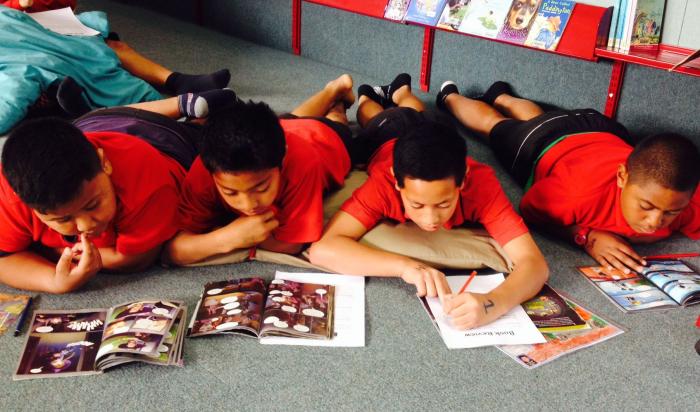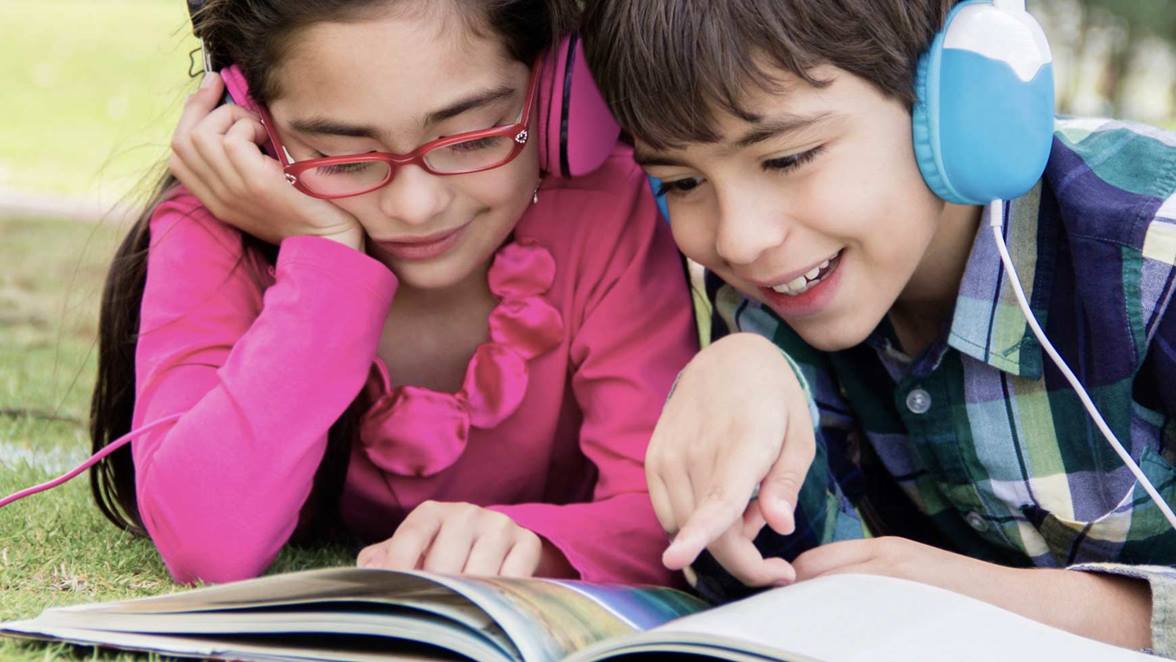It’s not how you read but how much that matters. Students who read get smarter, says Anne Cunningham, author of Book Smart: How to Develop and Support Successful, Motivated Readers. “[R]eading promotes knowledge and really does make you smarter.”
You don’t have to read with your eyes to reap the benefits. Listening to audiobooks exposes students to new words and knowledge. TV and conversation don’t even come close to books in the complexity of their language. Even comic books have twice as many rare words as expert witness testimony and three times as many as adult conversation, according to Cunningham.

Some people know a lot about the world: Paris is the capital of France, cheetahs are an endangered species, in England trucks are called lorries. Where does this general knowledge come from? Carefully controlled studies by Cunningham and others show that the amount a student reads or is read to is the most important factor for developing general knowledge, more important than how smart they are, or how well they read. Students who read more know more about history and science than their peers who read less, and they remember basic facts better.
A student who reads 20 minutes per day outside of school, is exposed to nearly 2 million more words each year than a student who doesn’t read. The process builds on itself. The more a student reads, the more words he knows. Knowing more words makes comprehension easier. Better comprehension makes reading more enjoyable.

The great news is that any kind of reading offers these benefits: comic books, children’s books, magazines, newspapers and audiobooks. Mark Seidenberg, a cognitive neuroscientist who studies language, reading and dyslexia put it this way in his new book Language at the Speed of Sight: How We Read, Why So Many Can’t, And What Can Be Done About It: “Read. As much as possible. Mostly new stuff.”
Many audiobooks are available with your public library card. You can also find free audiobooks on the Librivox website. Students with documented print disabilities can access books on Bookshare.org. Books can be read by downloading software or streaming online. Students can also follow along with the text, further enriching the experience. Here at Bayhill, students use a variety of audiobook sources such as Audible, Nook and Learning Ally.
If you are looking for books for your student to read, why not check out the graphic novels, audiobooks, and links below.
Graphic Novels: Gene Luen Yang American Born Chinese and Boxers and Saints; Raina Telgemeir Smile and Ghosts; Article in the Guardian on graphic novels for teens.
Audiobooks: The Wee Free Men by Terry Pratchett. The reader for this fantasy series is fantastic; Ender’s Game by Orson Scott Card. Classic sci fi story well read by several readers; Unbroken by Laura Hillenbrand. Gripping WWII biography of Olympic athlete Louis Zamperini who survives a plane crash, weeks at sea in a raft, and captivity in a Japanese prison camp; Bomb: The Race to Build–and Steal–the World’s Most Dangerous Weapon by Steve Sheinkin Spies, geniuses, nuclear bombs, high stakes cross-country skiing, this non-fiction book has it all.
List of amazing audiobooks for young adults.
Susan Ryan is an educational therapist with nearly two decades of experience in education from pre-K to college level, with a particular interest in reading. When not working at Bayhill or in her private practice she can be found reading about reading.

Awesome blog with great references <3 love it. Thank you!